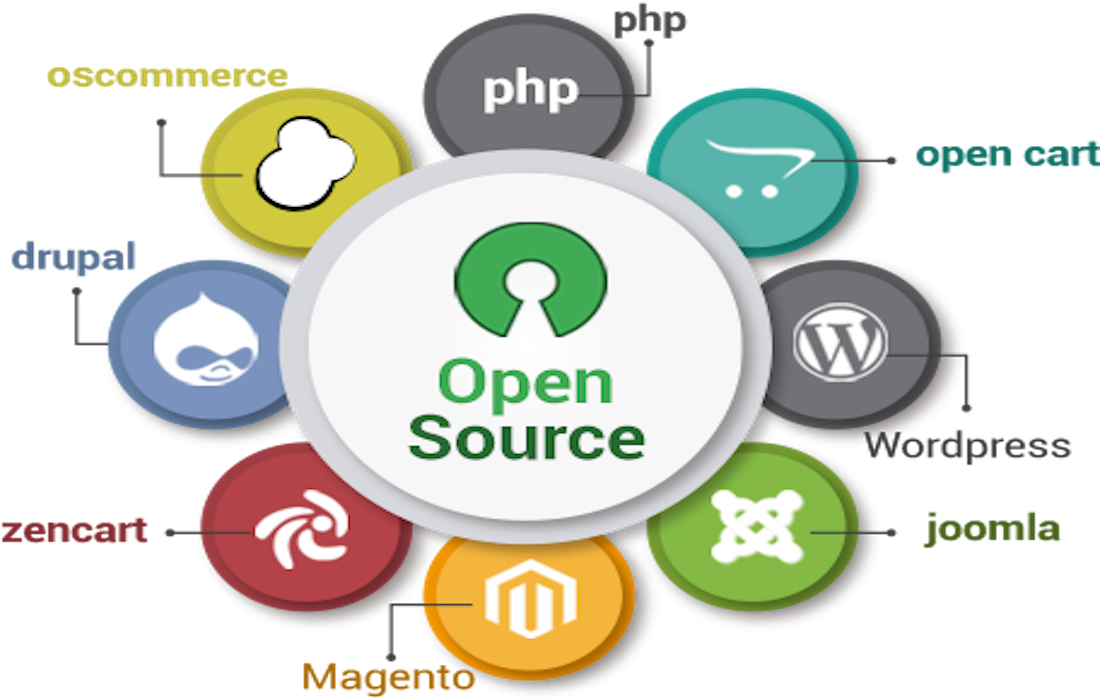Disclosure: This post contains affiliate links. I may receive compensation when you click on links to products in this post. For an explanation of my Advertising Policy, visit this page. Thanks for reading!
The Pros and Cons of using Open source software.
One of the biggest pros of using Open source software is that it’s often the most cost-effective option available, especially for those just starting out. However, one of the biggest cons of using Open source software, often claimed by critics, is that Open source software is less secure than their proprietary, under license software counterparts.
In fact, Open source is usually free or at the very least, cheaper than Closed source proprietary software. Open source software is usually free to install as well. Actually, most Open source software is free since there are no licensing fees or yearly subscriptions as with their Proprietary software counterparts.
Lets go over some more Pros and Cons of using Open source software:
Here are more Pros of using Open source software:
1. Cost effective
2. Reliable
3. Flexible
4. No licensing fees.
5. Open source software is free to download, including its source code.
6. Popular Open source software often has great support from enthusiasts as well as its own support team which are compensated through their premium upgrades.
Here are more Cons of using Open source software.
1. Higher chances of exposure to vulnerabilities.
2. Security, more prone to hacking
3. No Warranties
4. More vulnerable to malicious attacks.
5. Open source software may not be as user-friendly as Proprietary software and often lacks support.
6. Hidden costs.
There’s no doubt that open-source software has a lot to offer. Smaller firms wanting some guidance on how to get started with it are welcome.
Open source software has been around since before the internet and there’s no doubt it has its benefits.
Although there are several disadvantages, which make Proprietary code so appealing.
When should I choose Proprietary software over Open source software?
When it comes to choosing between Proprietary software and Open source software, there are a number of factors that should be considered.
Some of the key considerations include factors such as security, cost effectiveness, ease of use and support.
Generally speaking, Open source software is a more cost-effective option for many businesses.
This is because it is often free or at least significantly cheaper than Proprietary software.
It is also more flexible and customizable, which can be a huge advantage for businesses that need a solution tailored specifically to their needs.
That said, Open source software does have some significant drawbacks as well. For example, it can be more vulnerable to hacking and other malicious attacks due to its open nature.
Furthermore, it may not be as user-friendly or easy to use as Proprietary software, and it often lacks the support that many businesses require.
When choosing between Proprietary and Open source software, it is important to carefully consider your needs and the unique requirements of your business.
Finally, the right choice will depend on a number of factors, including budget, security concerns and overall ease of use, not only for you, but for your staff as well.
What are some examples of Open source software?
Apache HTTP Server, Mozilla Firefox, and the GNU Compiler Collection (GCC) are all examples of successful Open source software projects.
There are many other popular examples as well, such as WordPress, Drupal, and Joomla.
So overall, there are pros and cons to using Open source software. Whether or not it’s the right choice for you depends on your needs and preferences.
But one thing is clear, Open source software is here to stay!
What is the advantage of open source software given two examples?
Open source software has many advantages, the most notable of which is its accessibility and ease of use.
Because open source software is freely available to anyone with an internet connection, it can be easily accessed by individuals and organizations around the world.
Furthermore, there are many companies that provide robust support for open source tools and platforms, from simple online help forums to premium technical support packages.
In addition, because open source projects are typically developed by a large community of passionate users and developers, maintaining these tools and platforms tends to be relatively straightforward.
So whether you need to troubleshoot an issue or request a feature enhancement, there is almost always an expert ready and willing to assist.
Finally, this combination of flexibility and ease-of-access makes open source software an ideal choice for individuals and businesses alike.
Some notable examples of popular open source projects, as mentioned above include WordPress, Linux, and Drupal.
Whether you’re a developer seeking a powerful programming platform or a small business looking for reliable content management tools, the benefits of open source are obvious!
The Pros and Cons of using Open source software. Summary.
There are many more Pros and Cons to using Open source software. As with anything, it has its advantages and disadvantages.
Weigh them out and decide what’s best for you and your project. In the end, the decision is up to you.
Whether you choose Open source or Proprietary code, there are benefits and drawbacks to both.
So do your research, think critically about your project, and choose what works best for you.


